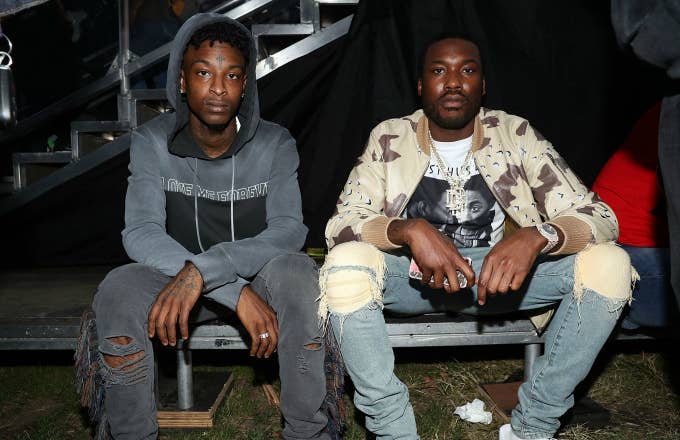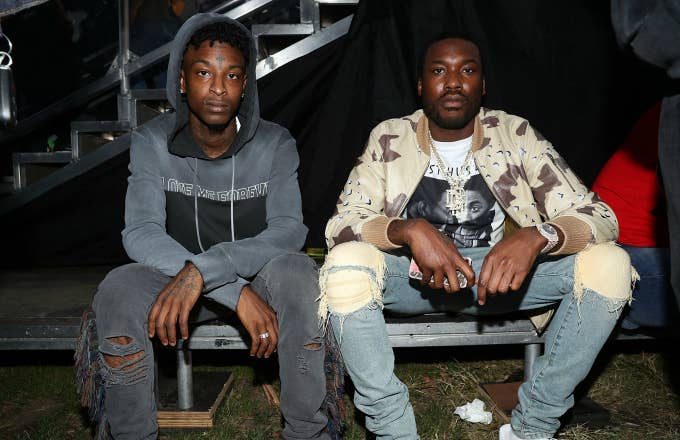
While Jamal Knox was awaiting trial for other charges, Pittsburgh authorities stumbled across a music video called "F**k the Police." In the song, Knox (a rapper that goes by the name of Mayhem Mal) talks about harming certain police officers. Local and state courts did not feel as though Knox's record fell into the grounds covered by the First Amendment. As a result, the track landed Knox a two year jail sentence.
Now, after Knox's appeal was denied, a coalition of rappers led by Killer Mike, Meek Mill, 21 Savage, Chance the Rapper, Yo Gotti, and Fat Joe sent a document to the Supreme Court in hopes it will consider reviewing Knox's case. The file which is described as "a primer on rap music and hip-hop," seeks to teach the justices about the history of rap music. Through this, they hope that Knox's song will be better understood as an expression of art rather than something punishable by law.
"A person unfamiliar with what today is the nation’s most dominant musical genre or one who hears music through the auditory lens of older genres such as jazz, country or symphony," the document reads. "May mistakenly interpret a rap song as a true threat of violence."
In an interview with TheNew York Times, Killer Mike further explains how a lack of understanding leads people to vilify rappers and/or rap culture.
"Outlaw country music is given much more poetic license than gangster rap, and I listen to both," Mike said. "And I can tell you that the lyrics are dark and brutal when Johnny Cash describes shooting a man in Reno just to watch him die and when Ice Cube rapped about a drive-by shooting early in his career... It’s no different from stop and frisk. It’s another form of racial profiling."
"While famous rappers like Eminem win Grammy Awards and make millions off the violent imagery in their songs, judges and juries are routinely convinced that lesser-known rap artists are somehow living out their lyrics as rhymed autobiography," Knox' lawyer R. Stanton Jones said. "It’s an alarming trend, often with devastating consequences for the young men of color who are almost always targeted in these cases."

